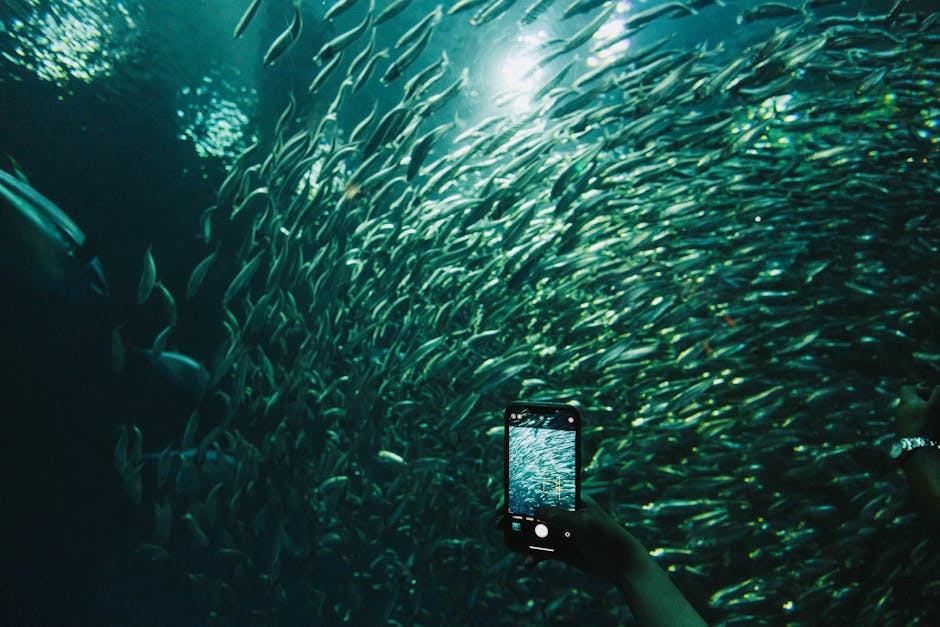The vastness of the ocean, a realm teeming with life, holds secrets that ripple far beyond its depths. Marine biodiversity, the intricate tapestry of life within the marine environment, plays a critical role in supporting not just the ocean’s health but also global ecosystems and human well-being. This essay delves into the profound importance of marine biodiversity, examining its multifaceted contributions to the planet’s intricate balance.
A complex web of life, marine biodiversity encompasses a staggering array of organisms, from microscopic phytoplankton to colossal whales. This incredible diversity underpins crucial ecological processes. Phytoplankton, for instance, form the base of many marine food webs, driving primary production and oxygen generation. Zooplankton, small drifting animals, serve as vital links between producers and higher trophic levels. The interconnectedness of these organisms is fundamental to the functioning of healthy marine ecosystems.
A significant aspect of this importance lies in the myriad ecological services provided by a rich biodiversity. These services are often undervalued, yet they are paramount to the well-being of coastal communities and the planet as a whole. One such service is the regulation of climate. Marine organisms, particularly phytoplankton, absorb significant amounts of carbon dioxide from the atmosphere during photosynthesis. This process helps mitigate the effects of climate change. Furthermore, marine biodiversity contributes to nutrient cycling, water purification, and the maintenance of coastal protection. Coral reefs, for example, act as natural barriers against storms and erosion, safeguarding coastal communities. This resilience, inherent in diverse systems, illustrates a key principle: diverse marine communities are more resilient to environmental disturbances.
Economic ramifications of marine biodiversity extend far beyond ecological considerations. Many livelihoods rely on healthy oceans. Fisheries, tourism, and coastal industries are directly linked to marine biodiversity. A thriving marine ecosystem ensures a steady supply of seafood, supporting communities dependent on fishing. Similarly, vibrant coral reefs and diverse marine habitats attract tourists, fostering economic growth in coastal areas. Sustainable practices in these sectors necessitate an understanding of biodiversity’s significance, as conservation efforts directly translate to long-term economic viability.
Investigating the intricate interactions within these ecosystems reveals further levels of complexity. Predation, competition, and symbiosis shape the structure and dynamics of these systems, and the loss of a single species can have far-reaching consequences. For example, the decline of keystone species, like sea otters, can trigger cascading effects throughout the entire food web, impacting fish populations and kelp forests. Understanding these intricate relationships, facilitated by research in marine biology and oceanography, provides vital insights into the importance of maintaining biodiversity for the continued health of the oceans.
Furthermore, marine biodiversity holds immense untapped potential for scientific discovery. Numerous undiscovered species and genetic resources reside within the marine environment. These undiscovered organisms represent a wealth of potential applications in various fields, from medicine to biotechnology. The study of marine organisms, their unique adaptations, and their biological processes could unlock innovative solutions to pressing global challenges. Marine organisms are invaluable sources of new medicines, materials, and knowledge.
However, this intricate tapestry of life faces unprecedented threats. Pollution, climate change, overfishing, and habitat destruction are relentless factors eroding marine biodiversity. Plastic pollution, for instance, threatens countless marine species through entanglement and ingestion. Ocean acidification, a consequence of climate change, jeopardizes the survival of coral reefs and other organisms dependent on calcium carbonate. Overfishing, while providing short-term economic benefits, can deplete fish stocks, disrupting delicate ecosystems. Addressing these challenges requires a global effort to promote sustainable practices and protect marine habitats.
Protecting marine biodiversity is an ethical obligation, recognizing the intrinsic value of these organisms and ecosystems. This responsibility extends beyond human interests, encompassing the well-being of countless species and the continuation of vital ecological processes. The importance of marine biodiversity transcends immediate human needs; it supports a complex interplay of life, fundamental to the planet’s long-term health.
The future of marine biodiversity hinges on our collective actions. Implementing sustainable fisheries management strategies, reducing pollution, mitigating climate change, and protecting marine habitats are paramount. International collaborations, stricter regulations, and public awareness campaigns are critical components of effective conservation efforts. Efforts to understand and value marine biodiversity are not merely scientific pursuits; they are vital steps towards securing a sustainable future for both the oceans and humanity.
In conclusion, marine biodiversity is not just a collection of species; it is a complex web of interactions that provide essential ecological services, underpin economic activities, and hold immense scientific potential. Protecting this rich tapestry of life is not a choice, but a necessity for maintaining a healthy planet and ensuring a sustainable future for generations to come. The responsibility to safeguard these precious resources falls upon us all.
